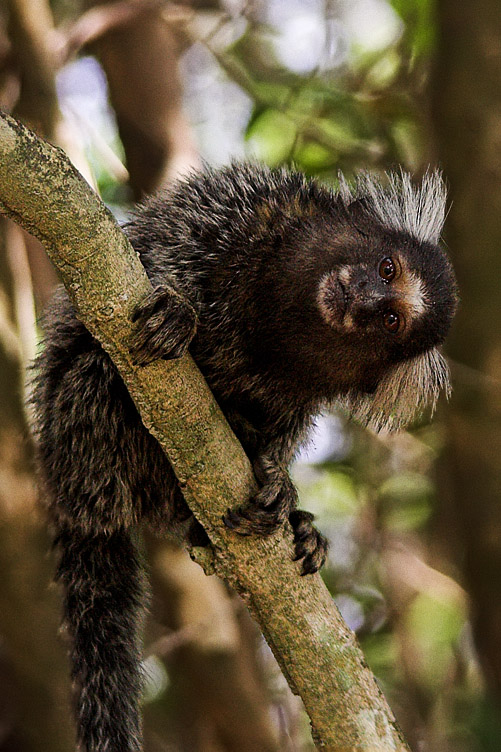Please note: The Academy will close at 3 pm today for Big Bang Gala.
Science News
Friday Roundup
October 18, 2013
by Molly Michelson

This week’s offerings of science news headlines include smart elephants, polite marmosets and ancient toothpicks.
Elephants Get the Point
Elephants seem to understand humans in a way most other animals don’t. How’s that? A study published last week in Current Biology reveals that elephants understand what it means when a human points.
This is impressive because elephants seem to get this spontaneously, where as primates and dogs only understand pointing after extensive training.
“By showing that African elephants spontaneously understand human pointing, without any training to do so, we have shown that the ability to understand pointing is not uniquely human but has also evolved in a lineage of animal very remote from the primates,” says study author Richard Byrne of the University of St Andrews. “What elephants share with humans is that they live in an elaborate and complex network in which support, empathy, and help for others are critical for survival. It may be only in such a society that the ability to follow pointing has adaptive value, or, more generally, elephant society may have selected for an ability to understand when others are trying to communicate with them, and they are thus able to work out what pointing is about when they see it.”
Read more about the study here.
Marmosets: Polite Conversationalists
Another study published in Current Biology finds that humans aren't the only species that know how to carry on polite conversation. Marmoset monkeys, too, will engage one another for up to 30 minutes at a time in vocal turn-taking.
Researchers at Princeton University placed marmosets in opposite corners of a room in which they could hear but not see each other and recorded the exchanges that ensued. They found that marmosets don't call at the same time, but rather wait for about 5 seconds after one is finished calling to respond. In addition, they found that the monkeys speed up or slow down the rhythm of their speaking to match each other, just as humans do. And these conversation habits did not vary whether the marmosets were friends or strangers.
In other words, both people and marmosets appear to be willing to “talk” to just about anyone, and without rude interruptions. Asif Ghazanfar, one of the study’s authors, explains that the discovery makes marmosets rather unique, noting that chimps and other great apes “not only don't take turns when they vocalize, they don't seem to vocalize much at all, period!”
Could this finding hint at the origins of human language? Read more here.
The Ancient Toothpick
Speaking of conversations, it’s always a bit awkward when chatting with someone with food in their teeth. Luckily there’s the toothpick. According to two new studies, our ancestors have been relying on this small tool for a long, long time.
A study earlier this month in the Proceedings of the National Academy of Sciences puts habitual toothpick use back 1.8 million years ago, reports the LA Times. The study looks at the dental wear of an unidentified Homo species fossil found in Dmanisi, Georgia. According to the LA Times, “the habit likely caused harm to the picker’s gums.”
But another study, published this week in PLoS ONE, determines that Neanderthals possibly used toothpicks to mitigate pain caused by oral diseases such as inflammation of the gums (periodontal disease). The fossil studied, believed to be 50,000 to 150,000 years old, provides the oldest documented case of palliative treatment of dental disease done with this tool, according to the study’s authors.
So, ancient toothpicks—good or bad? Discuss the point politely with someone!
Image: Carmem A. Busko/Wikipedia